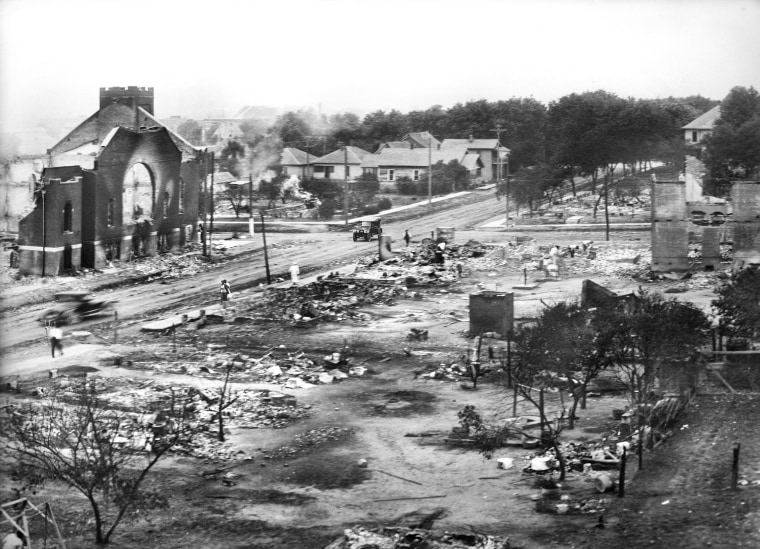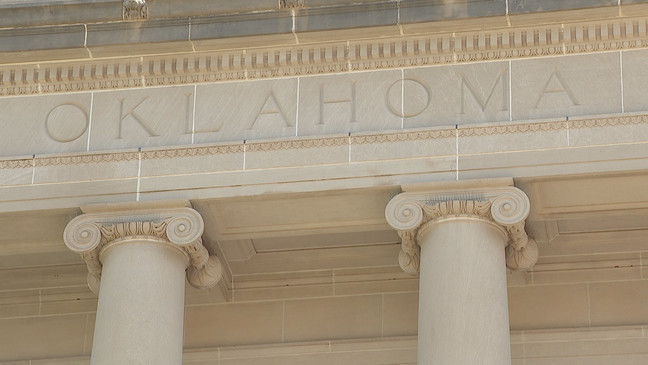A group of descendants and survivors of the 1921 Tulsa Massacre filed an appeal to the Oklahoma Supreme Court on Friday, requesting it to pick up a case that a lower court dismissed last month.
The group is calling for reparations for the century-old attack on the city’s prosperous Black neighborhood, nicknamed “Black Wall Street.” Lawyers representing the Tulsa survivors announced the appeal in a news conference Monday in front of the Oklahoma Judicial Center in Oklahoma City, stating that the lower court wrongly dismissed the case last month.
“We stand on the shoulders of so many,” said Damario Solomon-Simmons, civil rights attorney and founder of the Justice for Greenwood Foundation. “The thousands that suffered the massacre and the hundreds that have been fighting for justice since that time,” he continued.
Solomon-Simmons, who brought the lawsuit under Oklahoma’s public nuisance law, said he wants the high court to return the case to the district level for discovery, and for a judge to decide the case on its merits.
Survivors Lessie E. Benningfield Randle, Hughes Van Ellis and Viola Fletcher — all of whom are over 100 years old — previously had filed a lawsuit labeling the 1921 massacre as one of “the worst acts of domestic terrorism in United State history since slavery” and said the attack robbed thousands of Black residents of their self-determination, which continues to have harsh impacts on the community today.
Their suit, filed in 2020, sought reparations for the victims and descendants of the massacre, including an unnamed amount for punitive damages, a compensation fund, a scholarship program for descendants of those living in the Greenwood district at the time of the massacre, mental health and education programs for Greenwood residents.
Ellis, Fletcher and Randle did not attend Monday’s news conference.
Tulsa’s Greenwood neighborhood thrived with Black-owned businesses in 1921, when white rioters looted and burned 35 blocks, destroying more than 1,200 homes and businesses. As many as 300 people were killed and at least 800 others were injured. The tragic event also left more than 9,000 Black residents without homes, with the property damage throughout Greenwood estimated to be between $50 million and $100 million in today’s money, according to the lawsuit.

The city and insurance companies never compensated victims for their losses, and the massacre ultimately resulted in racial and economic disparities that still exist today, the lawsuit argues.
Some of the defendants named in the original lawsuit are the City of Tulsa, Tulsa County, the Tulsa Development Authority and the Oklahoma Military Department. Oklahoma Judge Caroline Wall sided with the defendants in her July ruling and dismissed the suit with prejudice, so it could not be refiled in state court.
A spokesperson for the City of Tulsa, Michelle Brooks, declined to comment, citing the pending litigation, according to The Associated Press.
Regina Goodwin, a member of the Oklahoma House of Representatives for the 73rd District, said during Monday’s press conference that Wall’s decision perpetuates the pain and injustice for the massacre survivors.
“We have trials just to get into trials,” said Goodwin, whose great-grandfathers survived the massacre. “That’s what has been the history of many Black folks as long as I’ve been living and before I was born and long after I’ll be gone.”

